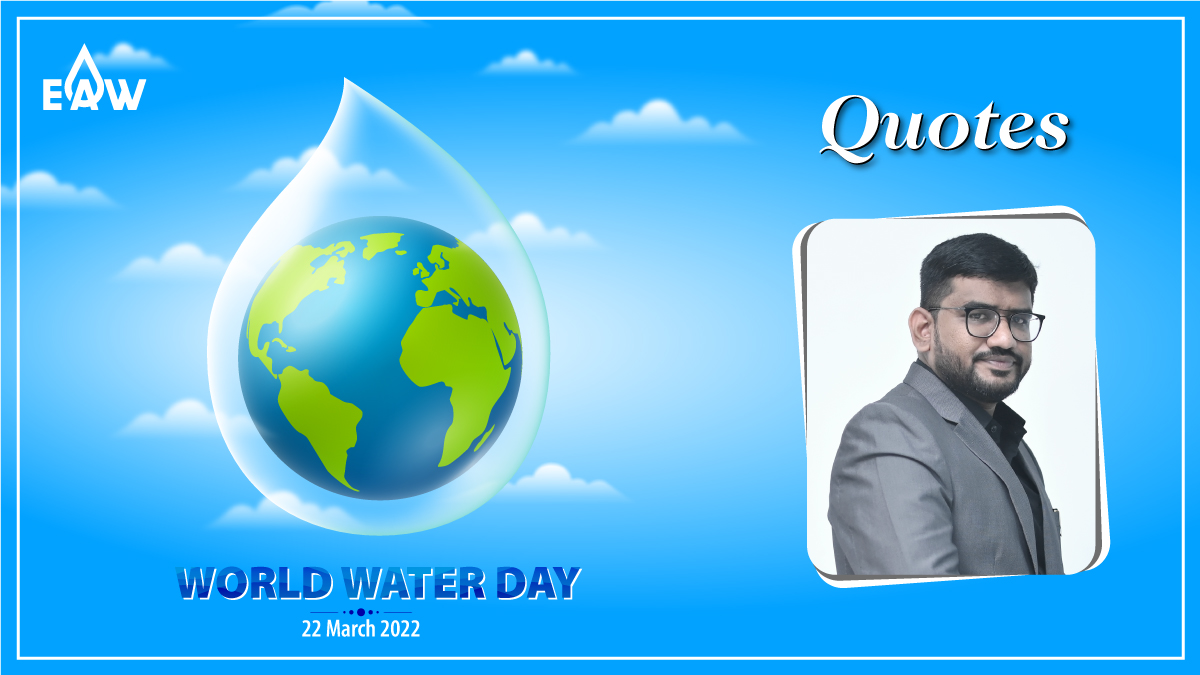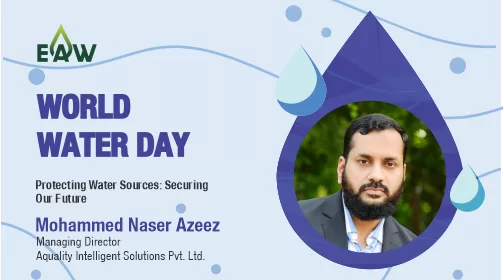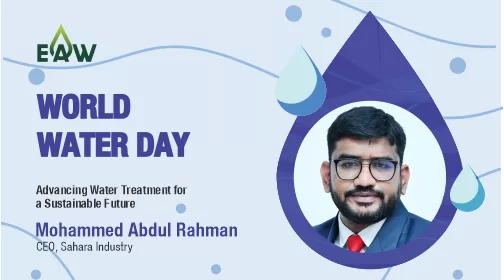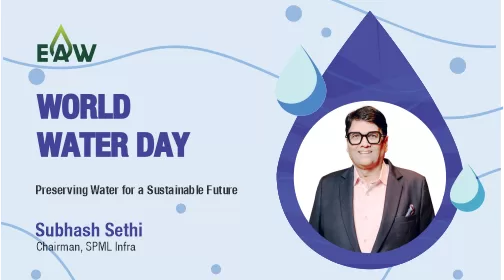World Water Day Quote by Abdul Rahman Mohammed, CEO, Sahara Industry
2.2 billion people in the world lack access to proper and clean water sources. In India, there are over 600 million people who is facing severe to extreme water stress. Water is the most essential element required to sustain human, animal and plant life and needed for everything – to ensure food security, feed livestock, maintain aquatic & organic life, take up industrial production and to conserve the biodiversity and environment along with all other activities.
Water is also essential for economic development. A recent study indicates that poor rural families can double their income if they have proper access to their own water sources, and the low-cost irrigation technologies can triple the annual profits of the farmers. It is difficult to imagine life without water. And also true that water can no longer be taken for granted as an unlimited resource. There is an imminent crisis approaching, and we need to be mindful of it. Predictions about future of water throwing grim picture as estimated 50% of the total population or about 5 billion people on earth will be severely affected by the water scarcity by the year 2050. In the absence of suitable corrective measures, many developing countries including India will have to face crisis of food and water security.
The United Nations has decided the theme for World Water Day 2022 as “groundwater: making the invisible visible”. It stresses upon the importance of groundwater resources which is declining much faster than any estimates and getting polluted due to all human activities. India is the largest user of groundwater sources, facing a difficult task with reducing of this vital resource. Some of the main challenges being faced in terms of drying up of groundwater sources include:
- India is the largest user of groundwater in the world. It uses an estimated 230 cubic kilometers of groundwater per year – over a quarter of the global total.
- More than 60% of agriculture and 85% of drinking water supplies are dependent on groundwater. Urban residents increasingly rely on groundwater due to unreliable and inadequate municipal water supplies.
- Groundwater acts a critical buffer against the variability of monsoon rains.
- Farmlands irrigated with groundwater have twice the crop water productivity of those that rely on surface-water alone. This is largely because the resource allows farmers greater control over when to irrigate their fields and how much water to use each time.
- Despite the valuable nature of the resource, 29% of groundwater blocks are semi-critical, critical, or overexploited, and the situation is deteriorating rapidly. Moreover, aquifers are depleting in the most populated and economically productive areas. Climate change will further strain groundwater resources.
The ever decreasing level of groundwater will have serious implications in India as it will affect sustainability of agriculture, food security, livelihoods, and economic growth at a greater level. Sahara Industry, being a leading name in water treatment solution providers in India, is continuously focusing its efforts in providing safe water for drinking, industrial and institutional purposes. Having been in the water industry for two decades, it has employed technologically advanced machineries and manufacturing solutions to create robust treatment management system for water and wastewater.
Traditionally, India has been a water rich country with ample amount of water available in every region is now facing an increasingly unpredictable situation and extreme water stress. We need to be very cautious with our water resources both ground and surface water as well as must take concrete initiatives to reclaim used water for non-potable reuse if we have to make water sustainable in India.






